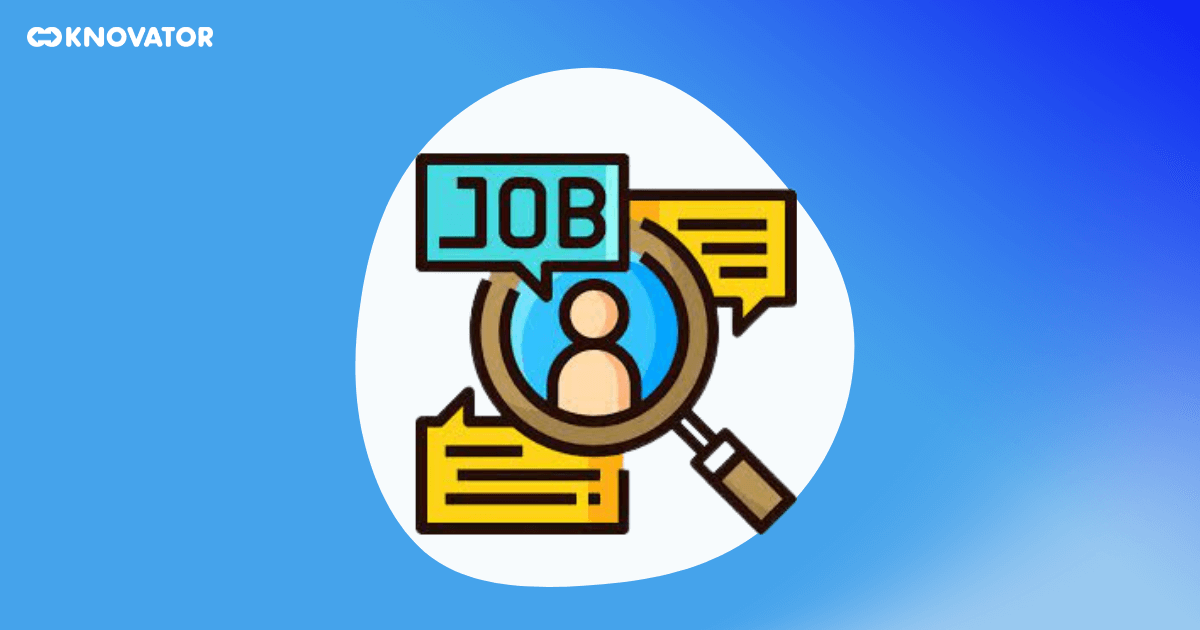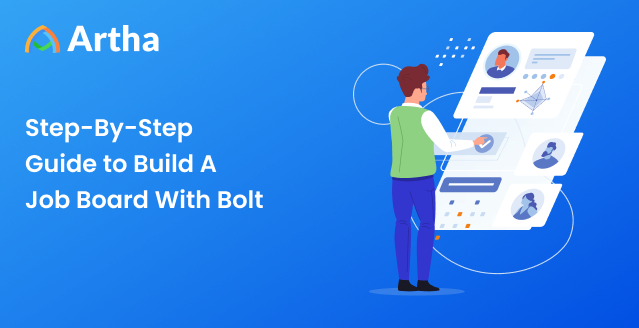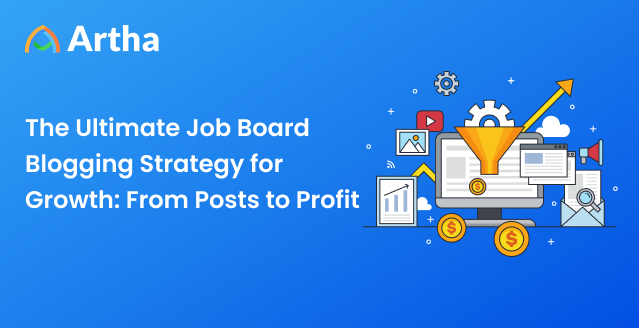In the ever-evolving landscape of talent acquisition and job hunting, job boards have become a cornerstone tool for employers and job seekers. These digital platforms have simplified the way companies advertise job vacancies and how individuals find and apply for jobs that match their qualifications and career goals.
This post explores job boards’ definition, benefits, and usage, providing a comprehensive understanding of their types and effective use strategies. Whether you are an employer aiming to attract the right talent or a job seeker looking to navigate the job market, this guide will provide you with essential insights to maximize the benefits of job boards.
What is a Job Board?

Types of Job Boards
Job boards come in various forms, each catering to different needs and preferences, as explained in Why Community Job Boards Are Better. Below are the numerous kinds of job board.
- Generalist Job Boards: These are platforms like Monster and CareerBuilder that cover a wide range of industries and roles. They’re ideal for those with flexible career plans or those looking to switch careers.
- Specialist or Niche Job Boards: These cater to specific sectors or job types. For instance, Dice is a niche job board for the tech industry, and Behance is for design professionals. They provide relevant information and easy comparison of jobs available in a particular industry.
- News and Classifieds Websites: These sites, such as The Guardian Jobs, have an employment section alongside news and other classifieds.
- Employment Offices: These are national organizations, often government-run, that display job offers and match employers with employees.
- Job Aggregators: These are websites like Indeed that aggregate job offers from multiple sources, including job boards, employers’ career websites, online classifieds, and associations’ websites.
- Employer Review Websites: These platforms allow current and past employees to review their experiences with a specific company, like Glassdoor.
Also Read : Best Job Board Software Guide
Benefits of Using Job Boards

For employers, job boards offer a cost-effective way to reach potential candidates. They can post detailed job descriptions, specify their requirements, and even browse through resumes to find suitable candidates. Some job boards also offer additional features like employer branding, where companies can create their own pages to attract potential employees. Job Wrapping further automates this process by pulling job listings directly from employer career pages, ensuring job boards stay updated with the latest opportunities.
Job boards also facilitate a faster hiring process. By providing a platform where employers and job seekers can connect directly, they eliminate the need for traditional, time-consuming recruitment methods.
How to Use a Job Board Effectively?

Create a Strong Profile: Your profile is the first thing employers see. Make it count by including a professional photo, a compelling headline, and a detailed summary of your skills and experience.
Use Advanced Search Features: Don’t limit yourself to basic keyword searches. Use advanced search features to narrow job listings by location, industry, job type, and more.
Set Up Job Alerts: Most job boards allow you to set up job alerts. This means you’ll get an email whenever a job that matches your criteria is posted.
Apply Quickly: Jobs on popular job boards can get a lot of applicants quickly. Apply as soon as you see a job you’re interested in to increase your chances.
Follow Up: Don’t just apply and forget. Follow up with the employer a week or so after applying to show your interest and initiative.
Remember, job boards are just one tool in your job search. Combine them with networking, direct applications, and other strategies for the best results.
Job Boards and Employer Branding

- Showcase Your Brand
Many job boards allow companies to create their own pages. This is an opportunity to highlight your company culture, values, and mission. Use this space to tell your company’s story and what makes it unique.
2. Attract the Right Candidates
A strong employer brand on a job board can attract candidates who align with your company’s values and culture. This results in a higher quality of applicants and a better fit for your company.
3. Promote Your Job Ads
Job boards can distribute your job ads to other websites and platforms where your target candidates can browse. This increases the visibility of your job ads and your employer brand.
4. Access to Resume Databases
Some job boards provide access to their resume databases. This can help you find potential candidates who may not have applied to your job ads but are a good fit for your company.
5. Employer Branding through Job Descriptions
How you write your job descriptions can also reflect your employer brand. Ensure your job descriptions are clear, engaging, and reflect your company’s values.
6. Integration with Applicant Tracking Systems (ATS)
Many job boards can be integrated. This can improve the candidate experience and further enhance your employer brand.
7. Employer Reviews
Some job boards allow for employer reviews. Positive reviews can enhance your employer brand, while negative reviews can provide valuable feedback for improvement.
Remember, your employer brand is not just about attracting candidates but also about retaining your current employees. A strong employer brand can make your employees feel proud to be part of your company and motivate them to perform their best.
Job Boards and Applicant Tracking Systems
Job boards and Applicant Tracking Systems (ATS) go hand in hand in the recruitment process. An ATS is a software application that helps handle recruitment and hiring needs. It can be implemented on an enterprise level, depending on the company’s needs.
ATS and job boards are integrated to streamline the recruitment process. When a job is posted on a job board, it’s also listed in the ATS with the same details. This allows for easy tracking of applications from various job boards in one place.
The integration of job boards and ATS improves the candidate experience by making the application process more straightforward. Candidates can apply directly on the job board, and their application is automatically sent to the ATS. This eliminates the need for candidates to navigate to another site to apply, reducing the risk of application abandonment.
Moreover, ATS can screen and rank candidates based on keywords, skills, former employers, years of experience, and schools attended. This helps recruiters, and hiring managers save time by only focusing on the most qualified candidates.
Furthermore, ATS can also provide analytics and insights about the effectiveness of job postings on different job boards. This is helpful as businesses can decide where to allocate their recruitment advertising budget.
However, it’s important to note that not all ATS are compatible with all job boards. Therefore, it’s crucial to ensure that your chosen ATS can integrate with the job boards that are most relevant to your hiring needs.
In conclusion, the integration of job boards and ATS can significantly improve the efficiency of the recruitment process, enhance the candidate experience, and provide valuable insights for recruitment advertising.
Choosing the Right Job Board

1. Target Audience: Different job boards attract different types of candidates. Some job boards are generalist, attracting candidates from all industries and job types. Others are niche, focusing on specific industries, job types, or experience levels. Choose a job board that aligns with your target candidates.
2. Features: Look at the features offered by the job board. Can you write detailed job descriptions? Are there options for targeting your job ad to specific types of candidates? Can you access a database of resumes?
3. Integration with ATS: As mentioned earlier, integration with your ATS can streamline your recruitment process. Check if the job board can integrate with your ATS.
4. Cost: Job boards can range from free to very expensive. Consider your recruitment budget and the potential return on investment. Remember, the most expensive job board is not necessarily the best for your needs.
5. Reputation and Reach: Consider the reputation of the job board. A job board with a good reputation will attract high-quality candidates. Also, consider the reach of the job board. A job board with a large reach can help you attract a large pool of candidates.
6. Ease of Use: The job board should be easy for you and the candidates. A complicated application process can deter candidates from applying.
By considering these factors, you get to choose the right job board that will help you attract the right candidates for your job vacancies.
Also Read: What are the important steps to launch a job board
Start Making The Most of Job Boards
Job boards play an important role in the contemporary job market, offering a dynamic platform where job seekers and employers can connect, communicate, and fulfill their respective objectives. They have revolutionized the way job vacancies are posted, and applications are received, processed, and managed, providing significant benefits in efficiency, reach, and cost-effectiveness. For job seekers, they offer a vast array of opportunities and a streamlined application process. Our in-depth guide on job boards in India for SMBs provides insights into some of the best platforms tailored for small and medium-sized businesses.
Employers provide broad access to potential candidates, efficient recruitment management, and insightful data for recruitment strategies. By understanding the various types of job boards and their effective utilization and integrating them with Applicant Tracking Systems, employers and job seekers can make the most out of these platforms. Whether you’re hunting for the perfect job or candidate, job boards are the best platform.





